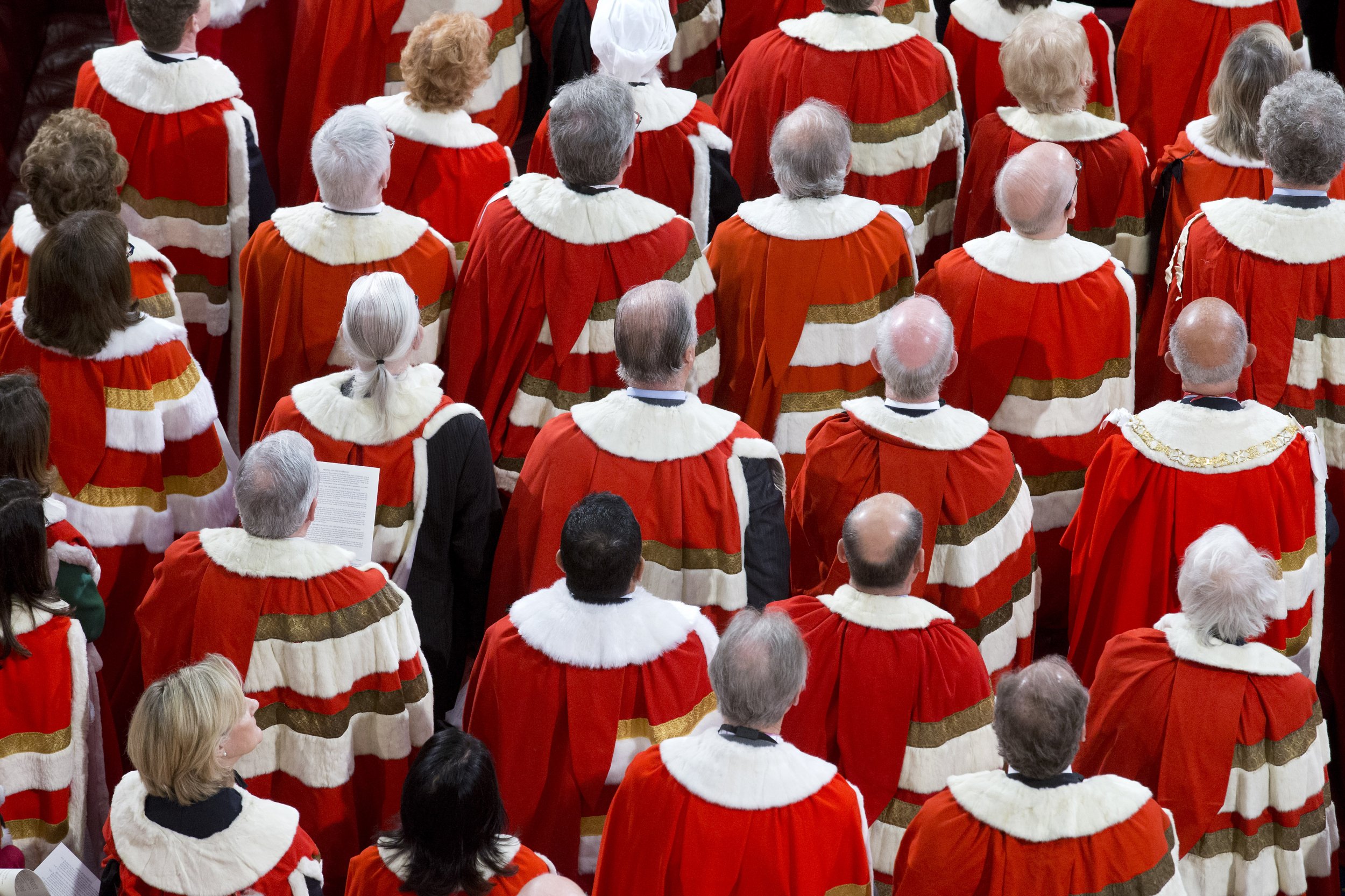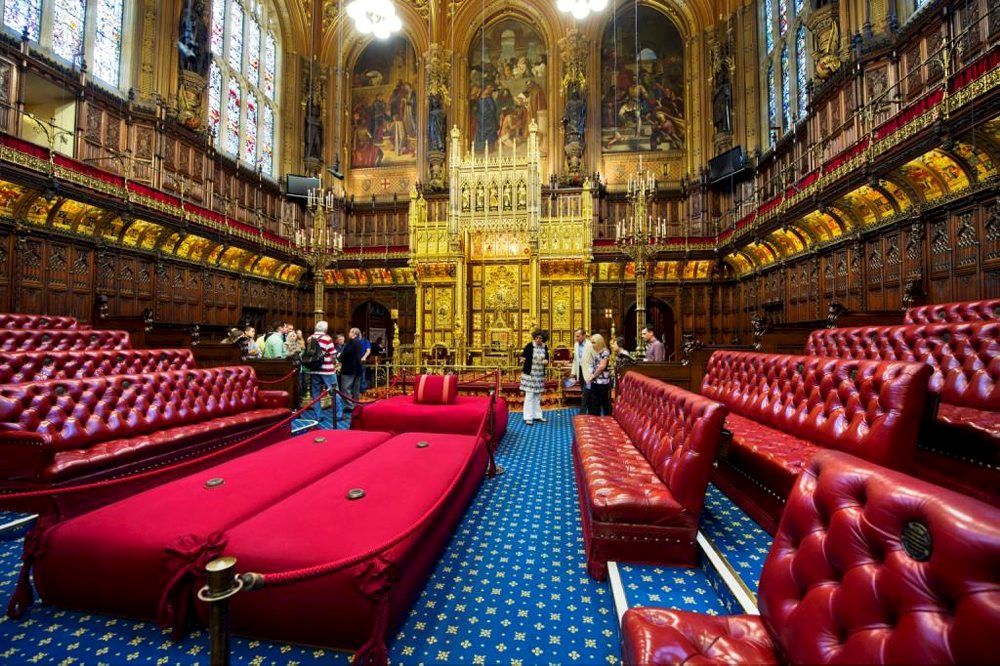Table Of Content
- Meet the British ex-Bank of England chief presiding over America’s bitter university culture war
- First deportation flight to Rwanda will not leave till summer, admits Sunak
- Number of members of the House of Lords in the United Kingdom in 2024, by political party or grouping
- U.K. Approves Bill That Would Send Asylum Seekers to Rwanda
- Number of members of the House of Lords in the UK 2024, by political party
- h century

The Lords has the power to delay a piece of legislation passed by the House of Commons for up to one year but cannot block a bill altogether. It is also unable to amend or initiate any ‘money bills’, which are bills that the Speaker of the Commons considers related to national taxation, public money or loans. While there are different routes to joining the Lords, peers, unlike MPs in the Commons, are not elected by the public but are either appointed (formally by the monarch on the advice of the prime minister) or, in a small number of cases, sit in the Lords ‘by right’. Despite these limitations, the House of Lords plays a significant role in Parliament. Its most useful functions are the revision of bills that the House of Commons has not formulated in sufficient detail and the first hearing of noncontroversial bills that are then able, with a minimum of debate, to pass through the House of Commons. It is further argued by some observers that the House of Lords serves a valuable function by providing a national forum of debate free from the constraints of party discipline.
Meet the British ex-Bank of England chief presiding over America’s bitter university culture war
House of Lords - The Institute for Government
House of Lords.
Posted: Tue, 17 Oct 2023 07:00:00 GMT [source]
If they were then granted refugee status, they would be resettled in Rwanda, not Britain. The standoff between the Lords and Commons has been boiled down to two amendments demanding an exemption from deportation for Afghans who worked with the UK military and an independent monitoring committee to establish that Rwanda is safe for asylum seekers. However, Countess Constance Markievicz of Ireland was a member of Sinn Fein, the political party seeking independence for the island nation, and thus refused to serve.
First deportation flight to Rwanda will not leave till summer, admits Sunak
They include figures like the Archbishop of Canterbury and they also sit in the Lords by right. Section 3 of the House of Lords Reform Act 2014 now provides that any member of the House of Lords convicted of a crime and sentenced to imprisonment for more than one year loses their seat. The House of Lords (Expulsion and Suspension) Act 2015 allows the House to set up procedures to suspend, and to expel, its members. Additionally, some bankruptcy-related restrictions apply to members of the Upper House. Subjects of a Bankruptcy Restrictions Order (applicable in England and Wales only), adjudged bankrupt (in Northern Ireland), or a sequestered estate (in Scotland) are not eligible to sit in the House of Lords. Individuals convicted of high treason are prohibited from sitting in the House of Lords until completion of their full term of imprisonment.
Number of members of the House of Lords in the United Kingdom in 2024, by political party or grouping
These provisions, however, only apply to public bills that originate in the House of Commons, and cannot have the effect of extending a parliamentary term beyond five years. A further restriction is a constitutional convention known as the Salisbury Convention, which means that the House of Lords does not oppose legislation promised in the Government's election manifesto. Before the new peers were created, however, the Lords who opposed the bill admitted defeat and abstained from the vote, allowing the passage of the bill.
U.K. Approves Bill That Would Send Asylum Seekers to Rwanda
In addition, the office of Lord Chancellor was reformed by the act, removing his ability to act as both a government minister and a judge. This was motivated in part by concerns about the historical admixture of legislative, judicial, and executive power. Whilst some hereditary peers were at best apathetic, the Labour Party's clear commitments were not lost on Merlin Hanbury-Tracy, 7th Baron Sudeley, who for decades was considered an expert on the House of Lords. In December 1979 the Conservative Monday Club published his extensive paper entitled Lords Reform – Why tamper with the House of Lords? And in July 1980 The Monarchist carried another article by Sudeley entitled "Why Reform or Abolish the House of Lords?".[34] In 1990 he wrote a further booklet for the Monday Club entitled "The Preservation of the House of Lords".
Another officer of the body is the Leader of the House of Lords, a peer selected by the Prime Minister. The Leader of the House is responsible for steering Government bills through the House of Lords, and is a member of the Cabinet. The Leader also advises the House on proper procedure when necessary, but such advice is merely informal, rather than official and binding. A Deputy Leader is also appointed by the Prime Minister, and takes the place of an absent or unavailable leader. Until 2009, the Lords Temporal also included the Lords of Appeal in Ordinary, more commonly known as Law Lords, a group of individuals appointed to the House of Lords so that they could exercise its judicial functions. Lords of Appeal in Ordinary were first appointed under the Appellate Jurisdiction Act 1876.
h century
The House of Lords was reduced to a largely powerless body, with Cromwell and his supporters in the Commons dominating the Government. It returned to its former position as the more powerful chamber of Parliament—a position it would occupy until the 19th century. As MPs and peers prepared to resume their consideration of the Safety of Rwanda Bill on Monday, Andrew Mitchell, the deputy foreign secretary, criticised the Lords over their approach to the legislation as he signalled there would be no concessions. The public in the United Kingdom elects each of the 650 members of the House of Commons.

The Stuart Kings
They were selected by the Prime Minister of the day, but were formally appointed by the Sovereign. A Lord of Appeal in Ordinary had to retire at the age of 70, or, if his term was extended by the government, at the age of 75; after reaching such an age, the Law Lord could not hear any further cases in the House of Lords. Former Archbishops of Canterbury, having reverted to the status of a regular bishop but no longer diocesans, are invariably given life peerages and sit as Lords Temporal. The Constitutional Reform Act 2005 resulted in the creation of a separate Supreme Court of the United Kingdom, to which the judicial function of the House of Lords, and some of the judicial functions of the Judicial Committee of the Privy Council, were transferred.
House of Commons
Britain’s Parliament passed contentious legislation to allow the deportation of asylum seekers to the African country, a political victory for Prime Minister Rishi Sunak. Today, all legislation must be approved by the House of Commons in order for it to become law. While the House of Lords can debate all bills that don’t deal directly with financial matters for the country, it is the House of Commons that holds the ultimate sway when it comes to whether legislation ultimately becomes law.
This episode was highly adversarial, but more commonly members of the Lords propose changes which the government accepts, in order to improve the substance of legislation. The Lord Speaker’s committee on the size of the house, chaired by Lord Burns, set out proposals to reduce the size of the chamber by encouraging retirements and asking party leaders to exercise restraint in appointments. Most recently, in 2022, the Brown Commission, proposed a fully elected ‘Assembly of Nations and Regions’ and the Labour Party is expected to include Lords reform in its next manifesto. The Constitutional Reform Act 2005, separated the judiciary from parliament, removing the Lords’ judicial remit and passing it to the Supreme Court of the UK. In 2014, reforms were passed to enable peers to retire or resign in an effort to reduce the chamber’s size. Since November 2000, some 673 peerages have been created, with most being political appointments.
A principal effect of the act has thus been to discourage the House of Lords from opposing bills strongly supported by the House of Commons. The Salisbury convention of 1945, which prevents the Lords from rejecting a bill at second reading (the principal stage at which parliamentary bills are debated) if it fulfills any pledge in the government’s election manifesto, has further constrained the Lords’ power. The lord speaker may be replaced as presiding officer by one of his or her deputies. The chairman of committees, the principal deputy chairman of committees, and several chairmen are all deputies to the lord speaker, and are all appointed by the House of Lords itself at the beginning of each session.
From 1603 to 1660, the country was mired in a drawn-out civil war and, for a time, military leader Oliver Cromwell assumed power under the title Lord Protector. For much of the 17th century, the United Kingdom experienced a great deal of change and political turmoil. Wentworth, a Puritan, later clashed with Elizabeth I over issues related to freedom of religion during his time as an M.P., and he was jailed for these acts as well. It was this persecution that led the Puritans to leave England for the New World in the 1600s, helping to settle the 13 colonies that eventually became the United States.
In 1998 the Labour government of Tony Blair introduced legislation to deprive hereditary peers (by then numbering 750) of their 700-year-old right to sit and vote in the upper chamber. A compromise, however, allowed 92 of them—who were elected by their fellow peers—to remain as temporary members. The measure, which went into effect in late 1999, was seen as a prelude to wider reform, and in 2007 members of the House of Commons offered support for two separate proposals, one calling for the House of Lords to be 80-percent elected, the other 100-percent elected. The nonbinding vote was influential in forming the July 2008 White Paper put forward by Justice Secretary Jack Straw that outlined potential reforms. These included the reduction of the total number of lords, the complete severance of ties between the peerage and seats in Parliament, and an either 80- or 100-percent elected chamber consisting of lords serving nonrenewable 12- or 15-year terms. Future votes in both houses were required before any such restructuring of the House of Lords could occur.
Former Lord Chancellors and holders of other high judicial office could also sit as Law Lords under the Appellate Jurisdiction Act, although in practice this right was only rarely exercised. Peers have gone far beyond their customary constitutional right to protest about a policy they do not like. They protest that their amendments are not intended to wreck the bill, but some peers clearly want to impede its passage until a new government arrives to withdraw it. One amendment to safeguard Afghan interpreters from deportation might be thought acceptable, except that ministers regard it as an exploitable loophole. However, the House of Lords does play a role in government accountability, through its questioning of cabinet ministers and the formation of special committees to address important matters of state. Its members are now mostly appointees, not peers who inherit their seats in the House of Lords.
Once the division concludes, the Tellers provide the results thereof to the presiding officer, who then announces them to the House. In the House of Lords, members need not seek the recognition of the presiding officer before speaking, as is done in the House of Commons. If two or more Lords simultaneously rise to speak, the House decides which one is to be heard by acclamation, or, if necessary, by voting on a motion.

No comments:
Post a Comment